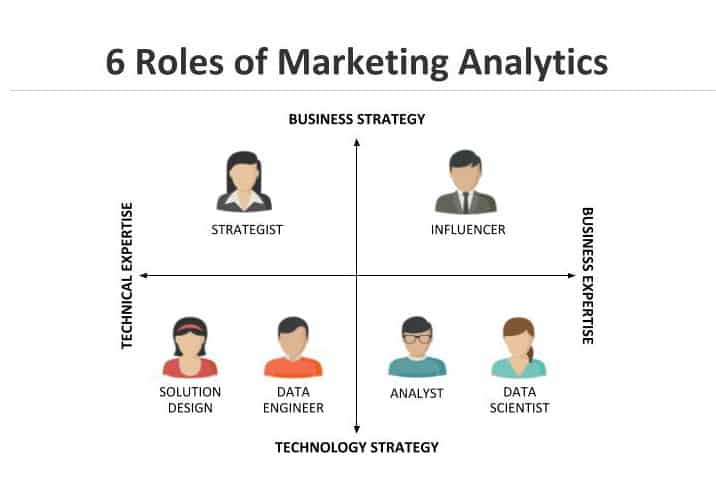Marketing analysts play a pivotal role in shaping business strategies by interpreting data to uncover market trends, consumer behavior, and competitive insights. Their work involves collecting, analyzing, and translating complex data into actionable recommendations that drive marketing decisions. From evaluating campaign performance to identifying growth opportunities, marketing analysts bridge the gap between raw data and strategic planning. By leveraging tools like analytics software, surveys, and market research, they help businesses optimize their marketing efforts, enhance customer engagement, and achieve measurable results. In a data-driven world, marketing analysts are the unsung heroes who ensure companies stay ahead in an ever-evolving marketplace.
Marketing Analysts, What Do Y'all Do?
Marketing analysts play a crucial role in helping businesses understand their market, customers, and competitors. They use data to identify trends, measure campaign effectiveness, and provide actionable insights to improve marketing strategies. Below, we break down their key responsibilities and skills.
See Also Marketing Specialist Salary and Responsibilities?
Marketing Specialist Salary and Responsibilities?1. What is the Role of a Marketing Analyst?
Marketing analysts are responsible for collecting, analyzing, and interpreting data related to marketing efforts. They evaluate the performance of campaigns, track customer behavior, and identify opportunities for growth. Their insights help businesses make informed decisions and optimize their marketing strategies.
2. What Tools Do Marketing Analysts Use?
Marketing analysts rely on a variety of tools to gather and analyze data. These include:
- Google Analytics for website traffic analysis.
- CRM software like Salesforce for customer data management.
- Data visualization tools such as Tableau or Power BI.
- Social media analytics platforms like Hootsuite or Sprout Social.
 How Do You Keep Up With Social Media Trends?
How Do You Keep Up With Social Media Trends?3. What Skills Are Required for Marketing Analysts?
To excel in this role, marketing analysts need a combination of technical and soft skills. Key skills include:
- Data analysis and interpretation.
- Proficiency in Excel, SQL, or Python.
- Strong communication skills to present findings.
- Knowledge of marketing principles and strategies.
4. How Do Marketing Analysts Measure Campaign Success?
Marketing analysts use Key Performance Indicators (KPIs) to measure the success of campaigns. Common KPIs include:
- Conversion rates.
- Return on Investment (ROI).
- Customer Acquisition Cost (CAC).
- Engagement metrics like click-through rates (CTR) and social media interactions.
 Which Brands' Social Media Presence Are You Impressed By?
Which Brands' Social Media Presence Are You Impressed By?5. What Industries Hire Marketing Analysts?
Marketing analysts are in demand across various industries. Some of the top industries include:
- E-commerce.
- Technology.
- Healthcare.
- Retail.
- Finance.
| Industry | Common Responsibilities |
|---|---|
| E-commerce | Analyzing online sales data, optimizing ad campaigns, and improving customer retention. |
| Technology | Evaluating software adoption rates, tracking user engagement, and analyzing market trends. |
| Healthcare | Assessing patient outreach programs, analyzing service demand, and improving marketing strategies. |
| Retail | Studying consumer behavior, optimizing in-store promotions, and analyzing sales data. |
| Finance | Tracking customer acquisition, analyzing loan or credit card campaigns, and improving ROI. |
What do marketing analysts do?

 What Are Your Favourite Examples of Guerrilla and Experiential Marketing?
What Are Your Favourite Examples of Guerrilla and Experiential Marketing?What is the Role of a Marketing Analyst?
Marketing analysts play a crucial role in helping businesses understand market trends, consumer behavior, and the effectiveness of marketing campaigns. They use data analysis and market research to provide actionable insights that drive decision-making. Their responsibilities include:
- Collecting and analyzing data from various sources such as sales figures, customer feedback, and market trends.
- Identifying patterns and trends to predict future market behaviors.
- Creating reports and dashboards to present findings to stakeholders.
How Do Marketing Analysts Use Data?
Marketing analysts rely heavily on data to make informed decisions. They use advanced tools and software to process large datasets and extract meaningful insights. Key activities include:
See Also What Are the Best Companies to Work at for a Career in Marketing?
What Are the Best Companies to Work at for a Career in Marketing?- Data mining to uncover hidden patterns and correlations.
- Segmenting audiences to target specific customer groups effectively.
- Measuring campaign performance to determine ROI and optimize future strategies.
What Skills Are Required for Marketing Analysts?
Marketing analysts need a combination of technical and analytical skills to excel in their roles. Essential skills include:
- Proficiency in data analysis tools like Excel, SQL, and Tableau.
- Strong statistical knowledge to interpret data accurately.
- Communication skills to present findings clearly to non-technical stakeholders.
What Tools Do Marketing Analysts Use?
Marketing analysts utilize a variety of tools to gather, analyze, and visualize data. Commonly used tools include:
- Google Analytics for tracking website traffic and user behavior.
- CRM software like Salesforce to manage customer data.
- Data visualization tools such as Power BI or Tableau for creating interactive reports.
How Do Marketing Analysts Impact Business Strategy?
Marketing analysts significantly influence business strategy by providing data-driven insights that guide decision-making. Their contributions include:
- Identifying growth opportunities in new or existing markets.
- Optimizing marketing budgets by allocating resources to high-performing campaigns.
- Improving customer retention by understanding and addressing consumer needs.
What are the duties of a market analyst?

Conducting Market Research
A market analyst is responsible for conducting market research to gather data on consumer preferences, market trends, and competitor activities. This involves:
- Designing and implementing surveys and questionnaires to collect consumer feedback.
- Analyzing sales data and market statistics to identify patterns and trends.
- Utilizing tools like Google Analytics and CRM software to track customer behavior.
Analyzing Data and Creating Reports
Another key duty is analyzing the collected data and creating detailed reports to guide business decisions. This includes:
- Interpreting quantitative and qualitative data to draw actionable insights.
- Preparing visual presentations such as charts, graphs, and dashboards for stakeholders.
- Summarizing findings in executive summaries to support strategic planning.
Monitoring Competitor Activities
Market analysts must keep a close eye on competitor activities to identify opportunities and threats. This involves:
- Tracking competitors' product launches, pricing strategies, and marketing campaigns.
- Conducting SWOT analysis to evaluate competitors' strengths and weaknesses.
- Providing recommendations to maintain a competitive edge in the market.
Forecasting Market Trends
Forecasting market trends is a critical responsibility to help businesses stay ahead. This includes:
- Using predictive analytics to estimate future market conditions.
- Identifying emerging consumer trends and potential market shifts.
- Collaborating with teams to align business strategies with market forecasts.
Supporting Marketing and Sales Teams
Market analysts play a vital role in supporting marketing and sales teams by providing actionable insights. This involves:
- Assisting in the development of targeted marketing campaigns based on consumer data.
- Helping sales teams identify high-potential markets and customer segments.
- Providing data-driven recommendations to optimize product positioning and pricing strategies.
What does someone in marketing analytics do?

What is the Role of a Marketing Analytics Professional?
A marketing analytics professional is responsible for analyzing data to help businesses make informed decisions about their marketing strategies. They use various tools and techniques to interpret data, identify trends, and measure the effectiveness of marketing campaigns. Their work helps companies optimize their marketing efforts, improve customer engagement, and increase return on investment (ROI).
- Data Collection: Gather data from multiple sources such as social media, website traffic, and customer surveys.
- Data Analysis: Use statistical methods and software to analyze the collected data.
- Reporting: Create detailed reports and dashboards to present findings to stakeholders.
How Do Marketing Analytics Professionals Use Data?
Marketing analytics professionals use data to understand customer behavior, preferences, and trends. They analyze this data to provide actionable insights that can improve marketing strategies and drive business growth.
- Customer Segmentation: Divide customers into groups based on behavior, demographics, or purchase history.
- Campaign Performance: Measure the success of marketing campaigns and identify areas for improvement.
- Predictive Analytics: Use historical data to predict future trends and customer behavior.
What Tools Do Marketing Analytics Professionals Use?
Marketing analytics professionals rely on a variety of tools to collect, analyze, and visualize data. These tools help them make data-driven decisions and provide valuable insights to their organizations.
- Google Analytics: Track website traffic and user behavior.
- Tableau: Create interactive data visualizations and dashboards.
- SQL: Query and manipulate large datasets stored in databases.
What Skills Are Required for a Career in Marketing Analytics?
A career in marketing analytics requires a combination of technical skills, analytical thinking, and business acumen. Professionals in this field need to be proficient in data analysis, have a strong understanding of marketing principles, and be able to communicate their findings effectively.
- Data Analysis: Proficiency in statistical analysis and data interpretation.
- Technical Skills: Familiarity with tools like Excel, Python, and R.
- Communication: Ability to present complex data in a clear and concise manner.
How Does Marketing Analytics Impact Business Decisions?
Marketing analytics plays a crucial role in shaping business decisions by providing data-driven insights. These insights help businesses understand their market, optimize their marketing strategies, and achieve their goals more effectively.
- Market Understanding: Gain insights into customer needs and market trends.
- Resource Allocation: Allocate marketing budgets more efficiently based on data.
- Performance Tracking: Monitor the effectiveness of marketing campaigns and adjust strategies as needed.
What skills do I need as a marketing analyst?

Analytical Skills
As a marketing analyst, analytical skills are crucial for interpreting data and making informed decisions. These skills involve the ability to:
- Analyze large datasets to identify trends and patterns.
- Use statistical tools and software to process data efficiently.
- Draw actionable insights from complex data to support marketing strategies.
Technical Proficiency
Technical skills are essential for handling the tools and platforms used in marketing analysis. Key areas include:
- Proficiency in data visualization tools like Tableau or Power BI.
- Knowledge of programming languages such as Python or R for data manipulation.
- Experience with CRM systems and marketing automation platforms.
Communication Skills
Effective communication is vital for presenting findings and collaborating with teams. This includes:
- Creating clear and concise reports and presentations for stakeholders.
- Translating complex data into understandable insights for non-technical audiences.
- Collaborating with cross-functional teams to align on marketing goals.
Business Acumen
Understanding the business context is critical for a marketing analyst. This involves:
- Knowledge of market trends and consumer behavior.
- Ability to align marketing strategies with business objectives.
- Identifying opportunities for growth and improvement based on data analysis.
Problem-Solving Skills
Marketing analysts must be adept at solving challenges and optimizing campaigns. This requires:
- Identifying inefficiencies in marketing campaigns and proposing solutions.
- Using critical thinking to address data discrepancies or unexpected results.
- Adapting strategies based on changing market conditions or consumer feedback.
Frequently Asked Questions from Our Community
What is the primary role of a Marketing Analyst?
A Marketing Analyst is primarily responsible for analyzing data to help businesses understand market trends, customer behavior, and the effectiveness of marketing campaigns. They use tools like Google Analytics, CRM software, and data visualization platforms to gather and interpret data. Their insights enable companies to make data-driven decisions, optimize marketing strategies, and improve overall business performance.
What skills are essential for a Marketing Analyst?
To excel as a Marketing Analyst, one needs a combination of technical and analytical skills. Proficiency in data analysis tools like Excel, SQL, and Python is crucial. Additionally, strong communication skills are necessary to present findings to stakeholders. A solid understanding of marketing principles, statistical analysis, and data visualization tools like Tableau or Power BI is also highly beneficial.
How does a Marketing Analyst contribute to a company's success?
A Marketing Analyst contributes to a company's success by providing actionable insights that drive strategic decisions. They identify key performance indicators (KPIs) and track them to measure the success of marketing campaigns. By analyzing customer data, they help businesses understand their target audience better, leading to more effective customer segmentation and personalized marketing efforts. This ultimately results in higher ROI and improved customer satisfaction.
What industries typically employ Marketing Analysts?
Marketing Analysts are employed across a wide range of industries, including retail, e-commerce, finance, healthcare, and technology. Any industry that relies on data-driven marketing strategies can benefit from the expertise of a Marketing Analyst. They are particularly valuable in industries with high competition, where understanding market trends and consumer behavior can provide a significant competitive edge.
Leave a Reply


Articles of interest